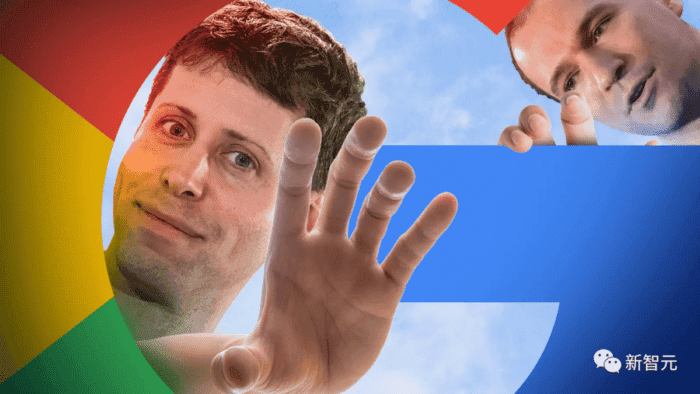According to The Information, OpenAI has poached at least a dozen Google AI employees in recent months. These engineers have played a vital role in ChatGPT research. Now no one can deny that OpenAI has become popular all over the world with ChatGPT. All AI practitioners and investors want to know how a small seven-year-old startup can beat Google. In fact, one of OpenAI’s “big killers” is to poach people from Google.
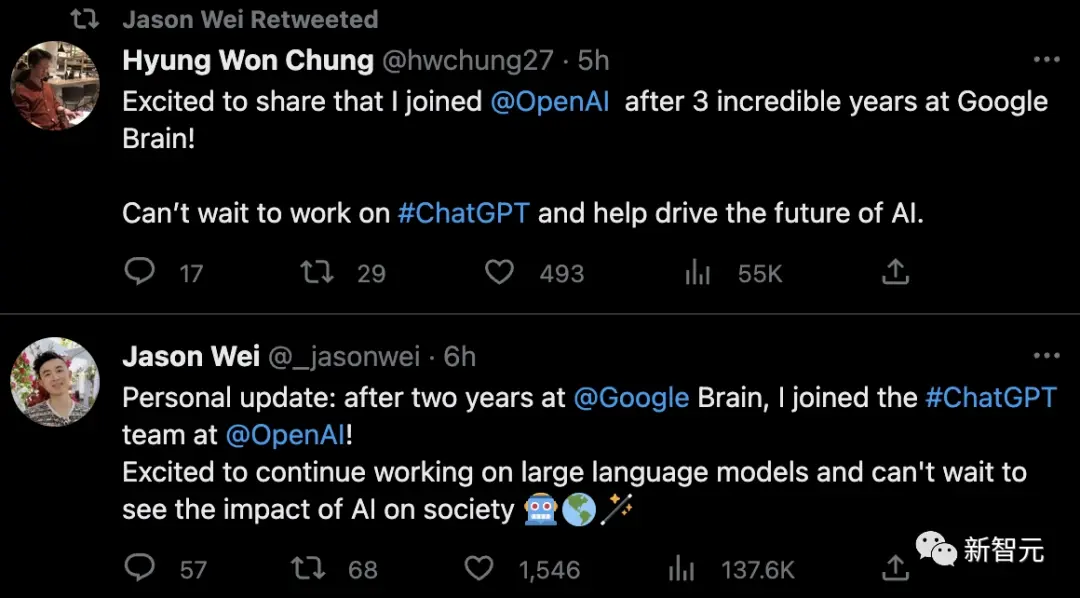
Now that ChatGPT has become top-notch, Google talents have also begun to take the initiative to switch to OpenAI. Today, two former Google employees, Jason Wei and Hyung Won Chuang seemed to have made an appointment, announcing their resignation from Google Brain and joining OpenAI, and they retweeted each other.
OpenAI’s Secret Weapon: Ex-Google Engineer
In fact, for the sake of ChatGPT, OpenAI started the “poaching” work very early. In the weeks leading up to the public launch of ChatGPT, OpenAI quietly poached at least five employees from Google to put the finishing touches so ChatGPT could launch in November. On OpenAI’s official announcement blog, Barret Zoph, Liam Fedus, Luke Metz, Rapha Gontijo Lopes, the names of these former Google employees, are listed in the list of main contributors to ChatGPT.
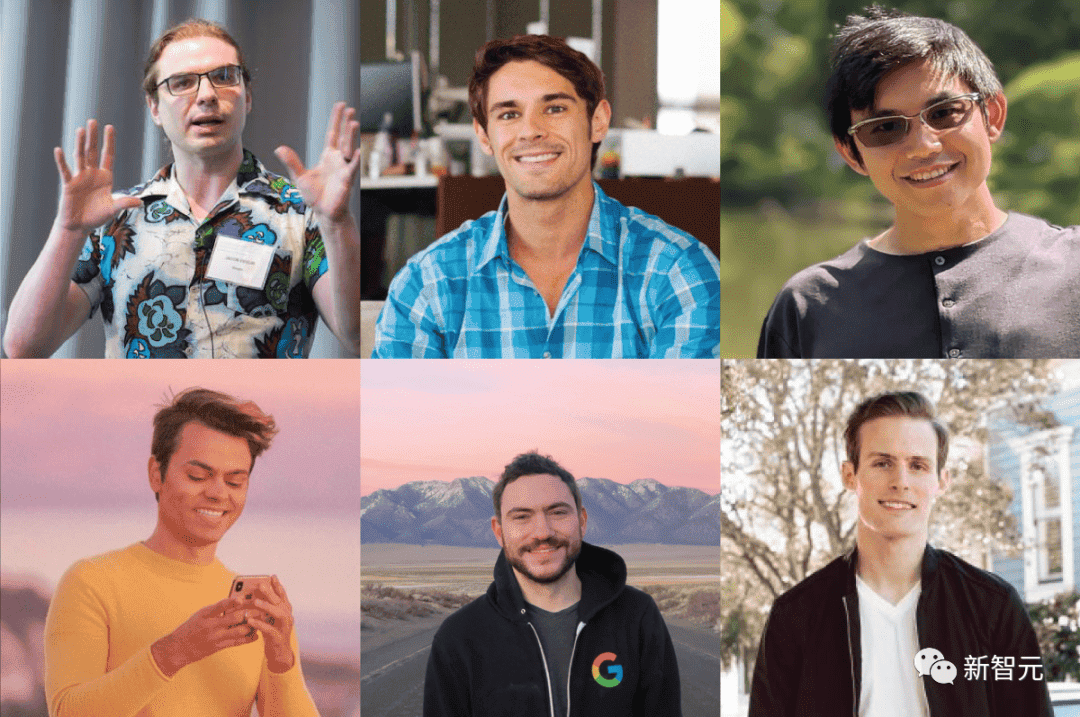
Top: Jacob Devlin, Liam Fedus and Shane Gu; Bottom: Rapha Gontijo Lopes, Samuel Schoenholz and Barret Zoph
Last month, OpenAI poached a researcher from Google who was responsible for developing machine learning models for the search engine. Then, OpenAI unsurprisingly used this technology on its own ChatGPT. And recently, as we saw at the beginning, researchers from Google’s main AI team, Google Brain, jumped ship to OpenAI. According to rough statistics, Google Brain has lost at least 4 core members. The core staff of Google Brain “defected” one after another.
Google: Didn’t catch up with the hot ones
After absorbing most of the machine learning talents in the world, Google was preempted by OpenAI. Google can only scramble to catch up with OpenAI and launch AI-centric products to the public. Objectively speaking, Google’s approach is deliberate and responsible. As a tech giant with huge influence, Google is always guarding against high risks, fearing that the nascent technology will make mistakes.

Some of the AI techs incubated by Google early on have been unknowingly transformed by OpenAI into new revenue-generating services, including chatbots, and AI that generates images and videos from the text. Google’s talents have also slowly lost to such small start-ups.
Recently, two Google Brain researchers said that many employees on the team believe that Google’s current product plans are overly cautious and full of red tape. In this general environment, engineers have to face the frustration that the new technology they have worked hard to research has never been adopted.
Some employees are frustrated that they have been suggesting that the chat function be integrated into the search engine for several years, but have not received feedback. So they made up their minds to leave and look for opportunities elsewhere, such as OpenAI.
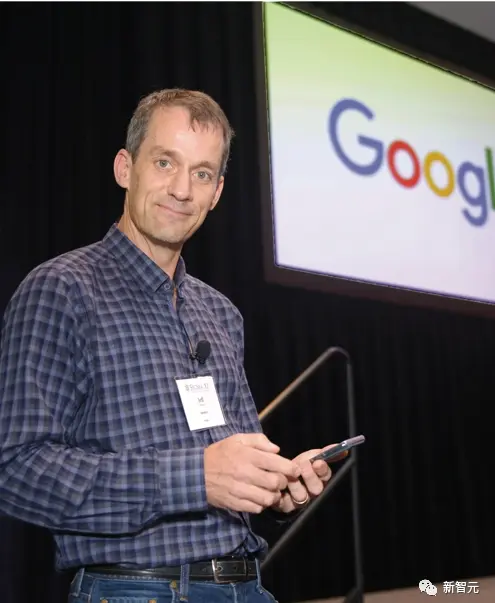
Google also poached top tech people in its early days
In fact, at the beginning of its establishment, Google poached people from big companies in this way. In the late 1990s, Digital Equipment, a then-established technology company, faced the difficulty of commercializing academic research. And Google took this opportunity to get the current AI leader – Jeff Dean.
Of course, Google is not sitting still and soon launched Bard. We all know the rest of the story, Bard is a far cry from ChatGPT. It gives very wrong answers to seemingly simple questions. As common as info about the James Webb Space Telescope, Bard failed it.
Staff must also sign a waiver
Late last year, Google staff still had to apply before they could use the company’s image-generating tech. Google modified this tech to not generate faces in order to prevent misuse. Also, internal users of the tech must sign a disclaimer releasing Google from responsibility for content generated by the system. According to reports, some staff of the team that created Imagen, one of Google’s two image-generating AI tools, have left.
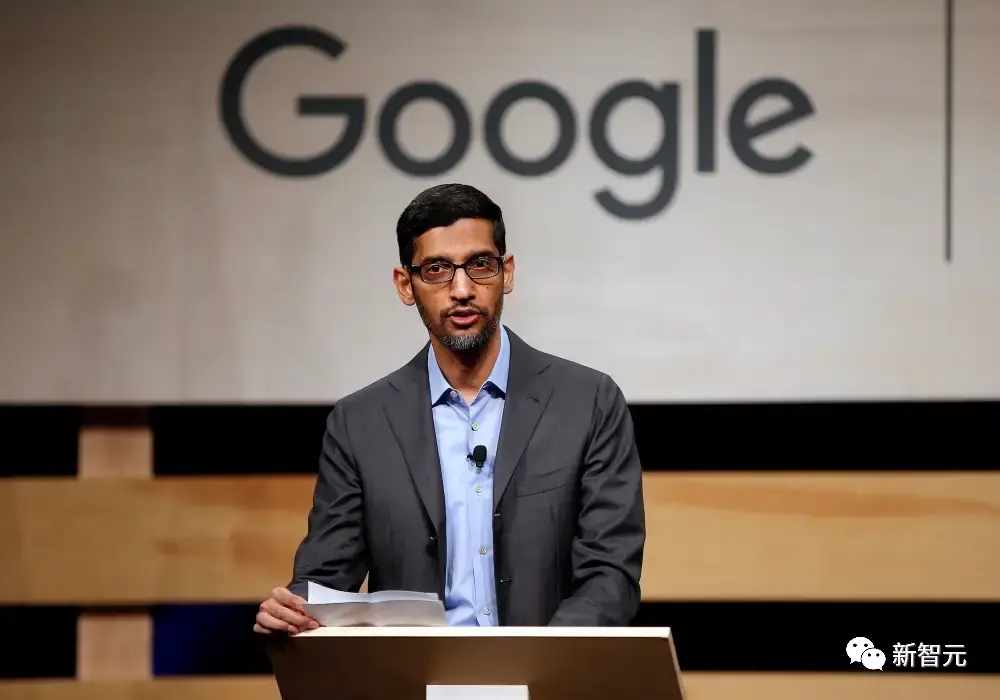
The startup, led by Imagen co-author Mohammad Norouzi, is said to have recently raised funding at a valuation of more than $100 million. Though the team has yet to have a clear idea of what it wants to launch. Within weeks of ChatGPT’s launch, Google’s leadership told staff at an all-hands meeting that while the company had similar tech, the scale of Google’s product (billions of users) meant it had to be bigger than the ones like OpenAI.
However, after seeing the prosperity of ChatGPT, Google immediately released the red code and launched a “green channel” to shorten the process of evaluating and mitigating potential harm. Unfortunately, it was too late.
One by one, all gone
With the momentum of ChatGPT, OpenAI continues to attract researchers at Google. In January of this year, Jacob Devlin switched to OpenAI. He once helped Google create a very famous machine learning model – Bidirectional Encoder Representations from Transformers, referred to as BERT.
Shane Gu, David Dohan, Alexandre Passos and Samuel Schoenholz also recently left Google to join OpenAI. The Alexandre Passos just mentioned is not only a senior software engineer of Google Brain but also has published many papers on machine learning and natural language processing. Among them, “Scikit-learn: Machine learning in Python” has even been cited nearly 70,000 times.
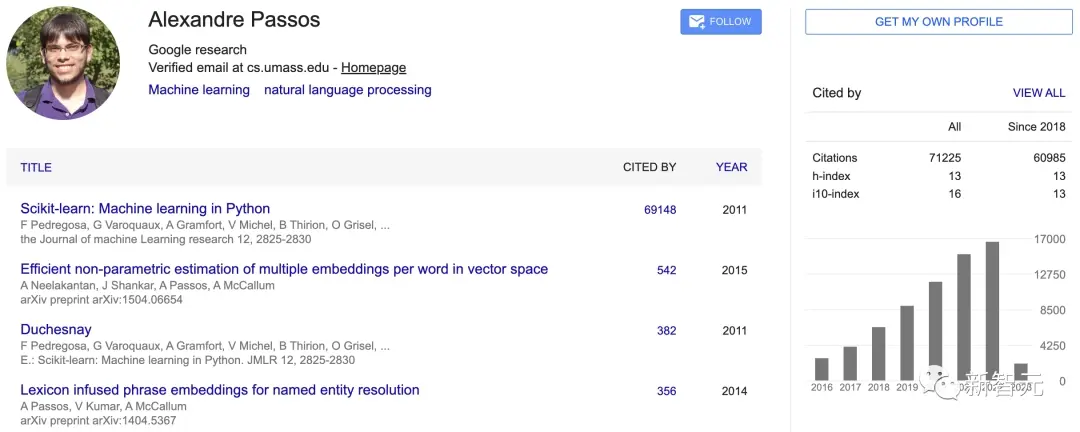
However, the loss of a small number of personnel has little impact on Google Brain, which has 800 of the world’s top talents. In addition, it is also normal for star employees to leave big factories to start their own businesses. There are quite a few emerging AI startups out of the hands of former Google Brain employees. Under pressure from rival OpenAI, Google’s leadership has increasingly leaned toward delivering new products faster. Since the end of last year, Google Brain’s demand for engineers has also increased. The pace of work has also accelerated significantly as Google tries to further increase the speed of product introduction.

